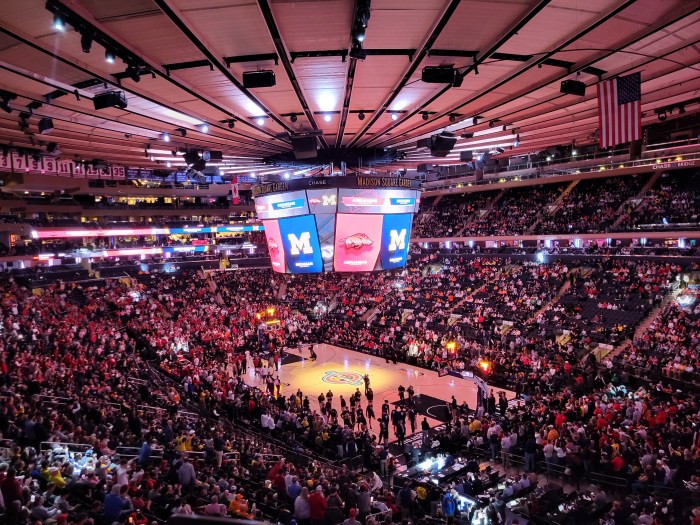By Elizabeth O’Brien
Some residents are crying foul over the proposed expansion of the Union Square Partnership, saying they shouldn’t be required to pay for a business improvement district whose main function is supporting neighborhood commerce.
Officials at the Union Square Partnership, the city’s first business improvement district, are working on an expansion that will more than double both its area and the number of participating properties. The current BID district covers all the properties around Union Sq. and on both sides of 14th St. between Sixth and First Aves. The expansion would extend to Seventh Ave. along 14th St. and from the west side of Sixth Ave. to the east side of Irving Pl. and Park Ave. S. between 15th and 20th Sts.
Opponents say they don’t want to finance the sanitation services that the BID provides.
“I’d rather talk to the city about doing a better job than bring in another group that’s not accountable,” said Michele Golden, vice president of the Flatiron Alliance, a residents organization, who lives on W. 18th St. in the proposed expansion area.
Golden said her building of condominiums already pays a private carting company to collect residents’ garbage. And the superintendent looks after the grounds of the building, she said, making her reluctant to contribute towards a BID that would perform a similar function.
Of the 46 business improvement districts citywide, 11 tax residents more than a nominal amount, said Ethan Davidson, a spokesperson for the city’s Department of Small Business Services. The Union Square Partnership annually charges residents $.00165 per dollar of their property’s assessed value, considerably more than the token $1 annually that some BIDs charge. However, the assessed value of the property is still significantly less than its market value, said Henry Choi, director of public affairs for the Union Square Partnership.
Choi said the existing BID area is 40 percent residential, and that most residents understand the “value-added” services the BID provides, including public safety officers, economic development and sanitation.
Not all residents oppose the expanded BID. Gail Fox, co-chairperson of the Union Square Community Coalition, lives on W. 15th St. in the existing BID district. She said she doesn’t mind paying a small assessment and likes having easy access to the resources of the Union Square Partnership.
“I find if there’s an issue in the neighborhood, I can pick up the phone and get the appropriate person at the BID,” Fox said.
The Union Square Partnership will hold its first public meeting on the expansion on Wed., Feb. 18 in the Washington Irving High School auditorium, 40 Irving Pl., between 16th and 17th Sts.
Business improvement districts throughout the city must follow a standard procedure when they want to form or expand, Davidson said. Opponents can voice their objections to the BID during a 30-day comment period held by the City Council. The 30-day comment period for the Union Square Partnership expansion will begin in several months, Choi said.
After the comment period begins, districts can generally proceed with their desired action unless they face opposition from either 51 percent of the property owners in the area, or those representing 51 percent of the assessed valuation of the area, Davidson said.
Ernie Raab, president of the Flatiron Alliance, said he plans to speak out against the proposed expansion. He estimated that for him the annual BID assessment would be approximately $150. A resident of W. 17th St. since 1977, Raab said that a business improvement district was very welcome when Union Sq. was a dirty, drug-ridden neighborhood in the late 1970s and early 1980s. But it’s no longer necessary, he said.
Said Raab, “We have a hot neighborhood which doesn’t need improving.”




































